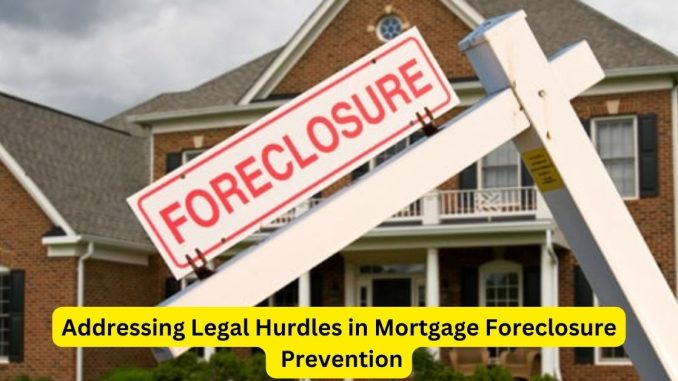
Foreclosure remains a distressing prospect for homeowners facing financial hardship, but legal avenues exist to navigate and prevent these situations. Attorneys play a crucial role in addressing various legal challenges associated with foreclosure prevention, ensuring homeowners have a fighting chance to keep their homes.
- Loan Modification and Negotiation: Attorneys specialize in negotiating loan modifications with lenders. They advocate for favorable terms, including reduced interest rates, extended repayment periods, or principal reductions, aiming to make mortgage payments more manageable.
- Foreclosure Defense Strategies: Attorneys employ foreclosure defense strategies, challenging lenders’ actions through legal means. They scrutinize loan documents for errors or predatory lending practices, often resulting in legal defenses that can delay or halt foreclosures.
- Breach of Contract and Fraud Examination: Attorneys investigate potential breaches of contract or instances of fraud in loan agreements. Uncovering fraudulent or deceptive practices can provide grounds for legal action against lenders, potentially preventing foreclosure.
- Bankruptcy Protection and Chapter 13 Plans: Attorneys guide homeowners through bankruptcy options, particularly Chapter 13, which allows individuals to reorganize debts, including mortgage arrears, and create repayment plans to prevent foreclosure.
- Mediation and Settlement Conferences: Attorneys represent homeowners in mediation or settlement conferences mandated by some states before foreclosure proceedings. Their advocacy aims to reach mutually beneficial agreements with lenders to avoid foreclosure.
- Dual Tracking Prevention: Attorneys help prevent “dual tracking,” a practice where lenders pursue foreclosure while simultaneously considering loan modification requests. Legal interventions aim to stop this process, ensuring fair consideration for modification options.
- Fair Debt Collection Practices Act (FDCPA) Compliance: Attorneys ensure lenders comply with the FDCPA, protecting homeowners from abusive or deceptive debt collection practices during foreclosure proceedings.
- Tenant Protection and Leasehold Rights: In cases where foreclosed properties have tenants, attorneys advocate for tenant rights, ensuring their legal protections and leasehold rights are upheld during foreclosure proceedings.
- Loss Mitigation Representation: Attorneys represent homeowners in loss mitigation procedures mandated by some lenders or jurisdictions, ensuring fair treatment and compliance with legal requirements in these processes.
- Appeals and Post-Foreclosure Remedies: If foreclosure occurs, attorneys explore post-foreclosure remedies, including appeals or seeking redress for wrongful foreclosure, aiming to regain homeownership or obtain restitution.
In conclusion, attorneys specializing in foreclosure prevention leverage legal expertise to protect homeowners’ rights and provide viable strategies to prevent or mitigate foreclosures. Their interventions encompass negotiation, legal defenses, compliance checks, and advocacy, offering a lifeline to homeowners grappling with the daunting prospect of losing their homes.
Leave a Reply